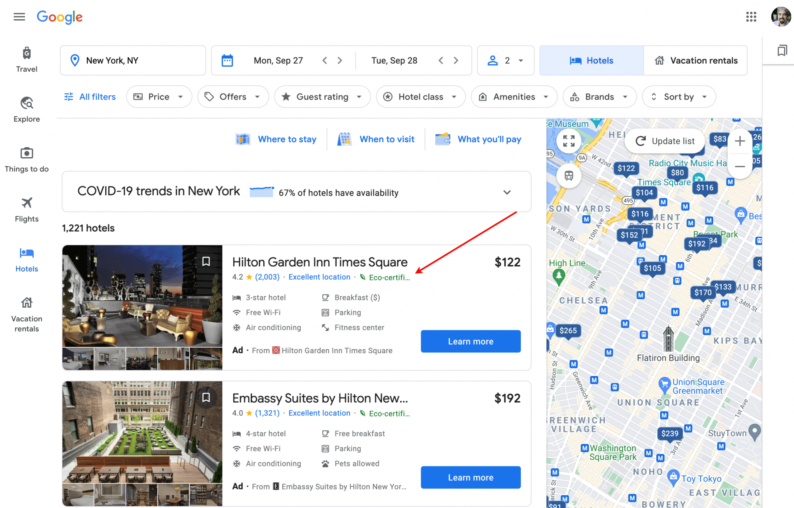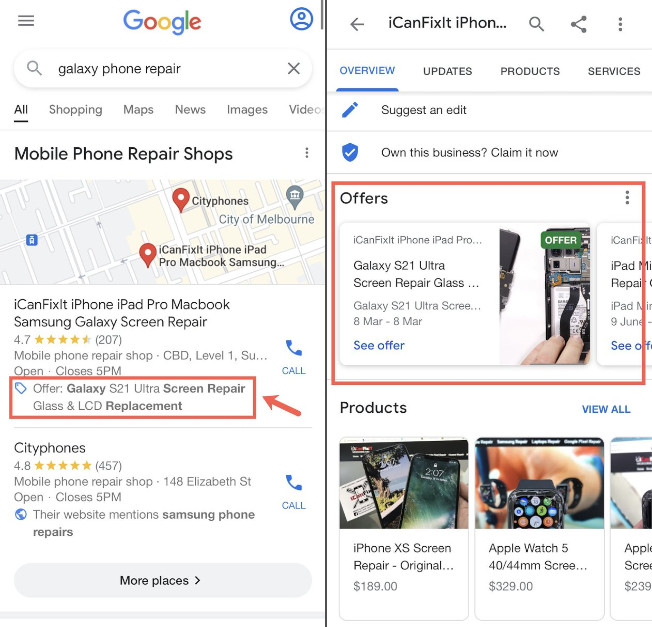Another month, another laundry list of changes in local search. If you’re feeling like it’s becoming increasingly difficult to keep up with Google search results changes, you aren’t alone. Data shows that changes in Google search results have been more intense and frequent in 2021 compared to previous years. Unconfirmed-yet-impactful Google algorithm updates have contributed to 68% more volatility on desktop and 85% more volatility on mobile.
We track rankings to measure the impact of changes and provide peace of mind in business decisions. Without an SEO expert to constantly track your ranking fluctuations against seasonal changes, possible technical mistakes, and Google updates, it’s hard to know if your search strategy is harmful, helpful, or a negligible use of your limited resources.
It is incredibly useful to know when algorithm changes occur (and all updates, for that matter), whether announced or not—and especially when they are known to impact specific industries. With that in mind, here’s your rundown of all the important local search news from October 2021.
Google adds new attributes and changes “led” to “owned”
Google My Business attributes are a uniform way for businesses to share what they offer and what a customer can expect from them such as non-industry specific details about the atmosphere or ownership. Google recently updated attributes in a few ways.
- Added a new business attribute named “crowd” to mark your business as LGBTQ+ friendly and a transgender safe space
- Changed “veteran-led” and “women-led” attributes to “owned” to maintain consistent wording in all attributes
- Added option for “Latino-owned”
- Changed the generic icon for “Women-owned” businesses to a purple heart label
The desire to support local businesses, especially businesses owned by women and minorities, is as strong as ever, so there is no reason a business should not list all applicable attributes. Not only will it help you stand out to the right customers, but the attributes will ensure Google ranks your business on new relevant queries. There is no harm in ranking for extra keywords and there are numerous benefits to advertising the unique offerings of your business that may otherwise have gone unnoticed.
Google adds the “offer” label just in time for the holiday season
As we head into the holiday season—the most wonderful time of the year—Google is helping shoppers out by introducing a new “offers” label for local businesses. The new label will inform users of deals the business is promoting such as sales on specific items or deals on services. Previously, any business could create an offer using Google Posts but now Google is going to highlight these deals separately from other posts.
This new label appears in a business’s knowledge panel or in the three pack justifications like a review snippet or website information. They will display on prime real estate on your listings and during the holiday shopping season, you know that customers will be paying attention to offers more other types of Google Posts.
New Google Help Docs: Best practices for ecommerce in Google Search
Google has added a multipage set of new help documentation around ecommerce best practices for Google Search. The docs include how to build the best possible ecommerce site for your users and Google Search. Sharing your product details on your GMB is called out as one of the most important actions your business can take.
Read up on the rest of the best practices Google has laid out to help businesses this holiday season:
- Understand how to create effective ecommerce content according to where it will appear.
- Learn about the Google Product Feed and other ways to share your product data with Google.
- Help Google understand and appropriately present your content by providing explicit information about the meaning of your page with structured data.
- Learn how to strategically launch a new ecommerce website and understand timing considerations when registering your website with Google.
- Explore how to design a URL structure for ecommerce sites and avoid common crawling and URL design issues.
- How to design a site navigation and linking structure that informs Google what is most important on your ecommerce site.
- Learn common UX patterns for ecommerce sites and understand how they impact Google’s ability to crawl and index your content.
Your ecommerce site can expect higher traffic than usual in the last quarter of the year, and now is the time to start preparing for that. After all, even the best ecommerce site in the world won’t be successful if customers can’t find it. Your local listings can lead customers to your online store as well as your physical locations so you need to make sure those listings are optimized. With your local listings looking polished and linking to your online store, both your ecommerce and traditional commerce sources can cross promote each other and make sure your business has a very happy holiday.
Google moves forward with more eco-friendly initiatives
We wrote in August about Google’s new eco-certified badges for hotel listings and now Google is taking it a step further. Google announced a slew of initiatives that they are taking to make their efforts more sustainable and eco-friendly. This includes new features in Google Flights, Google Maps, Shopping and more.
- In July, hotels could start adding their sustainability and eco certifications to their listings in GMB. Google is now showing the eco-certified green label in the hotel listings in Google Search.
- Google Flights shows carbon emissions per seat for every flight.
- When you search for energy-intensive appliances like furnaces, dishwashers or water heaters, suggestions in the Google Shopping tab will help narrow your search to cost-effective and sustainable options.
- Google Maps has the option to choose the most fuel-efficient route.
- Google Search will make it easier to see hybrid and electric vehicle options, compare them against gas-powered models, and find rebates so you know the true cost before you buy.
- Google Finance will show you if the companies are sustainable.
While most of these are not aspects a business can influence, hotels including their eco-certified badges are. From a “Food Waste Production Program” to including “Vegetarian Meal Options”, any of the eco-friendly attributes that Google allows you to list could be the reason someone decides to book with you. If you are in the hospitality industry and are not already billboarding your sustainability initiatives in your GMB, now is the time to start.

Image: Search Engine Roundtable
Yelp adds virtual restaurant attribute to help reduce customer confusion
Like Google, Yelp has found value in business attributes. Google began with delivery attributes for restaurants out of a necessity at the start of the pandemic and years later they are still adding new attributes as user needs evolve. Yelp does much the same and is now targeting virtual restaurants.
Yelp is rolling out a “Virtual Kitchen” attribute for ghost kitchens, virtual restaurants, and virtual food courts to cut down on confusion regarding the dining experiences they offer. This attribute, along with all others that are relevant to your business, should be utilized for your listing whenever possible.
Attributes are continually growing and both Yelp and Google are billboarding any listings that specifically include an attribute relevant to a user’s query. You do not want to fall behind on utilizing these and should make sure that every attribute that applies to your business is included.
If you want to learn how to better keep track of your Google ranking and optimize your online presence, we’re here to help!





